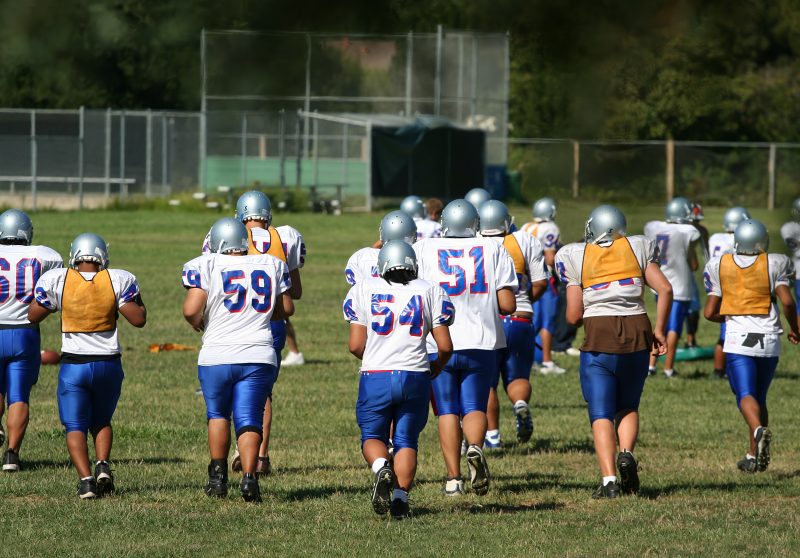
From traveling teams to 2-a-day practices, the summer sports season can be grueling for kids. Carolyn Penrod, MD, from Akron Children’s Urgent Care in Boston Heights, offers these tips on keeping your young athlete safe.
Communicate
Your child should tell you immediately if something hurts or doesn’t feel right. “Kids are tough, and they don’t want to be sidelined,” Dr. Penrod said. “Even young athletes know how to change the way they do things to avoid pain, but this often leads to more serious injuries.”
It’s important for parents and coaches to communicate, too. “Verify with the head coach that your child has the right protective equipment to reduce the risk of injury,” she shared. “Ensure the coaches teach the right techniques for the sport. Proper technique not only helps your child perform better, but it reduces his risk of getting hurt.”
Drink
Make sure players stay hydrated, especially in the summertime. “It’s important for athletes to have enough water before, during and after practice or a game,” Dr. Penrod explained. “Staying properly hydrated prevents fatigue and decreases the chance of injury.”
Most physicians agree that water is best. “But if a child exercises for more than 1-2 hours, then sports drinks like Gatorade can help replace some electrolytes that athletes lose,” she said. “However, a lot of sports drinks have added sugars and sodium that may be too much for our younger athletes.”
Eat
A well-balanced diet is important for people of all ages, especially active young athletes. “Fuel your child with a diet rich in vegetables, fruit and lean proteins,” Dr. Penrod suggested. “Schedules can be difficult to coordinate, but try to feed her breakfast, lunch and dinner around the same time every day.”
Stretch
“Not only is warming up a vital part of preventing sports-related injuries, but it helps kids develop good habits for life,” she said. “Warming up – toe touches and other stretches, jumping jacks – loosens muscles and prepares them for activity.”
Rest
Lack of sleep and muscle fatigue are two major factors that can contribute to sports-related injuries. “The most common problems are due to overuse – too much activity and not enough rest,” Dr. Penrod offered. “Encourage your child to rest as much as possible between practices and games. It’s also important to take time off to recuperate after each sports season ends.”
How do you know when it’s time for your young athlete to see a doctor? “Pain that doesn’t respond to rest should be assessed by a doctor. Other telltale signs include consistent pain during or after sports, swelling around a joint or the feeling that a joint is ‘giving out,’” Dr. Penrod said. “Our urgent care team sees more sports-related injuries in the summer than any other condition. It’s best to be cautious, and seek medical care before a minor sports injury turns into a major setback.”










